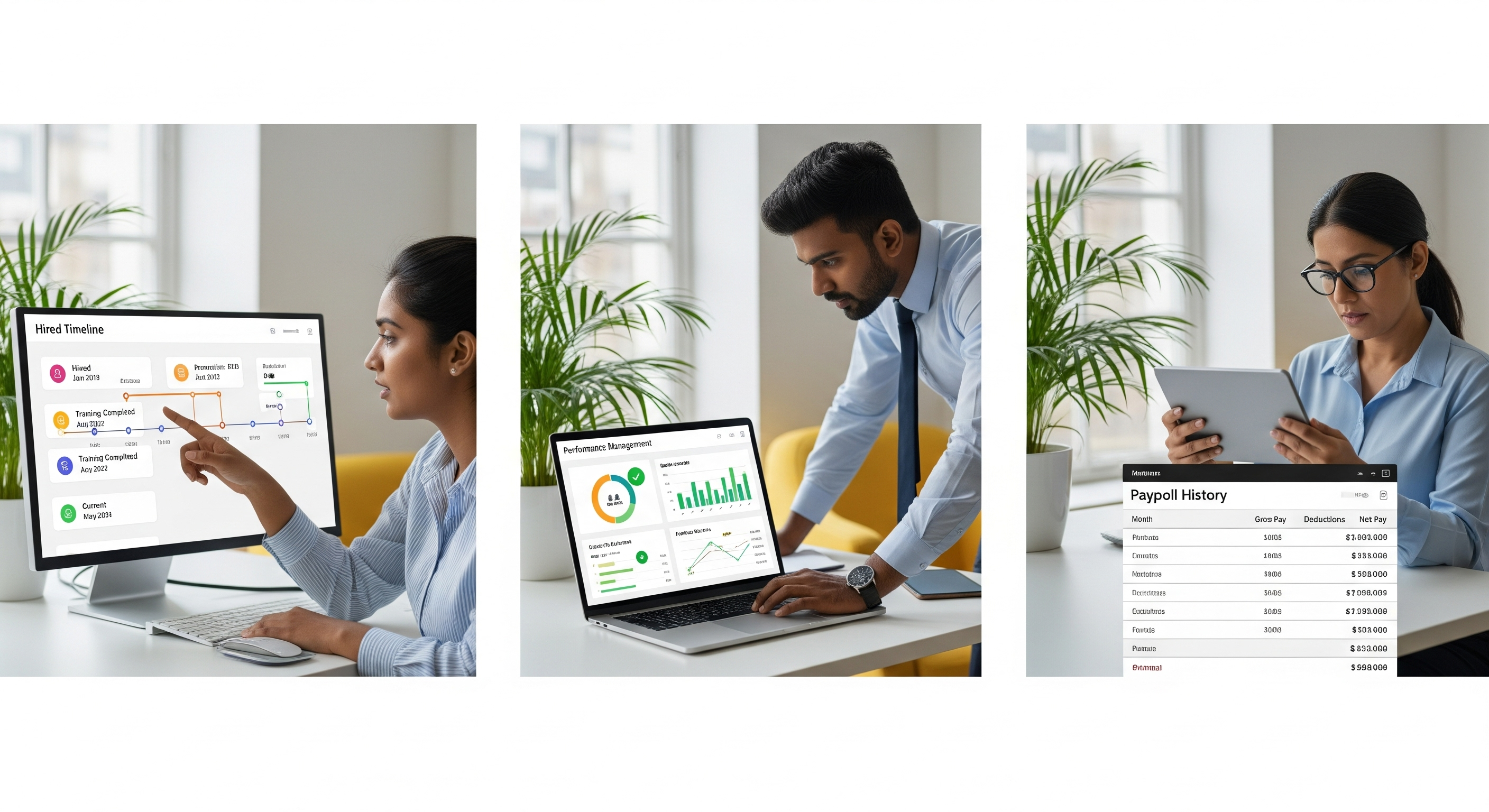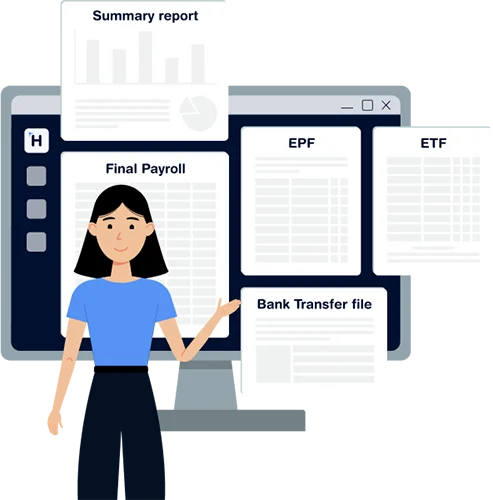Where do most Sri Lankan SMEs store employee information? Spreadsheets for salaries, paper files for contracts, and maybe a few notes in someone’s email or WhatsApp, and multiple other formats for different areas.
While this patchwork system might work in the early days, it becomes increasingly difficult to manage as your team grows.
That’s where employee reports generated through an HRIS (Human Resource Information System) start making a real difference. These reports go beyond just storing data, they help SME leaders make informed, timely decisions based on clear records of tenure, performance, and payroll history.
Here’s how these reports support both daily HR operations and long-term workforce planning.
Understanding Tenure at a Glance
Tenure data isn’t just for knowing how long someone has worked at your company, it also helps inform decisions on promotions, increments, and role changes. With HR software, you can easily generate reports that show join dates, probation periods, confirmations, and time in role.
For example, when planning a restructure or thinking about succession planning, these reports help you identify who has the most experience in a department and who may be ready to step up.
You can also use tenure reports to track employee retention rates and understand which roles or departments see the most turnover, valuable insight for any SME aiming to build a stable team.
Tracking Performance History Over Time
Not every SME runs formal performance reviews, but tracking past evaluations, recognitions, and milestones can still help you manage your team more fairly and effectively.
Employee reports can be used to capture:
- Salary progression over time
- Promotion or role changes
- Training program participation
- Awards or recognitions
Even having a simple record of past achievements can be useful when making decisions about pay adjustments or identifying employees ready for more responsibility. It also helps managers provide more constructive feedback based on previous history, rather than relying on memory or hearsay.
And in situations where performance issues arise, having clear records can support corrective actions while maintaining professionalism and transparency.
Payroll History That Supports Accuracy and Transparency
In Sri Lanka, many small businesses still rely on basic spreadsheets or WhatsApp communication to manage salary-related matters. But this often leads to confusion, especially when employees need access to past salary details, breakdowns, or confirmations.
With a proper HRIS, you can instantly generate reports that show:
- Monthly gross and net salary data
- Allowances, deductions, bonuses
- Overtime and no-pay adjustments
- Tax and statutory contributions (EPF/ETF/APIT)
This isn’t just helpful for internal decision-making, employees themselves benefit from being able to access their payroll history on demand, especially when applying for loans or visas.
Having this information available through digital reports also builds trust and transparency in your workplace.
Supporting Compliance and Audit Readiness
Employee reports also serve an important function during audits or Labour Department inspections. Whether it’s proving payroll accuracy, showing contract changes, or responding to compliance queries, these reports offer documented evidence that protects your business.
And because the reports are automatically updated in a digital HRIS system, you reduce the risk of missing information, backdated updates, or manual calculation errors.
How SMEs Can Start Leveraging Employee Reports
If you’re using HR software like Humanised or similar tools in the market, generating these reports is often as simple as clicking a button. You can filter by department, job title, location, or even performance scores, giving you flexible ways to understand your workforce.
For small business owners and HR staff juggling multiple responsibilities, this means less time compiling reports manually and more time focusing on people strategy.
Even if your company isn’t ready for performance ratings or KPIs yet, just having a reliable, centralized record of employee data will give your business a stronger foundation to grow from.
The Case for Smarter Reporting
As SMEs mature, the ability to make timely, informed decisions about people becomes a core part of sustainability. Employee reports don’t just make your HR operations smoother, they help you lead better.
When you know exactly who’s been with you the longest, how salaries have evolved, and what support your team has received, you can manage talent with more confidence and care. It’s a small change with a lasting impact.



